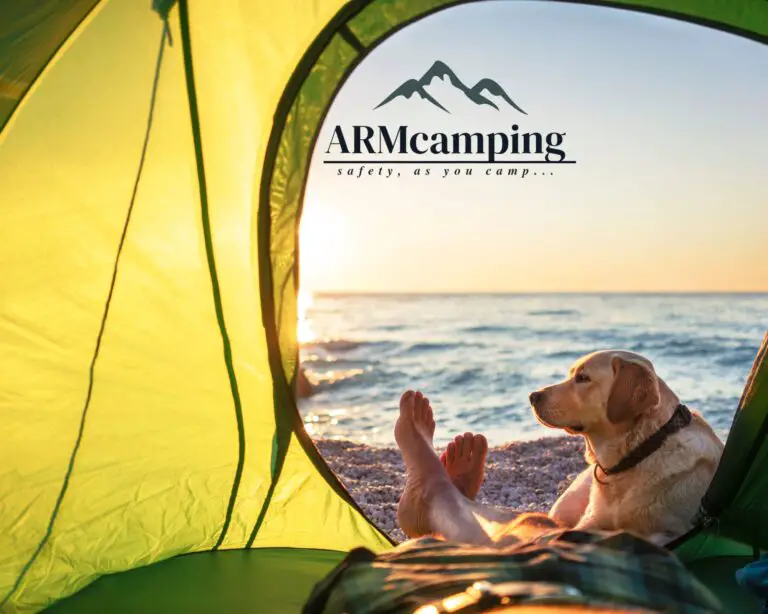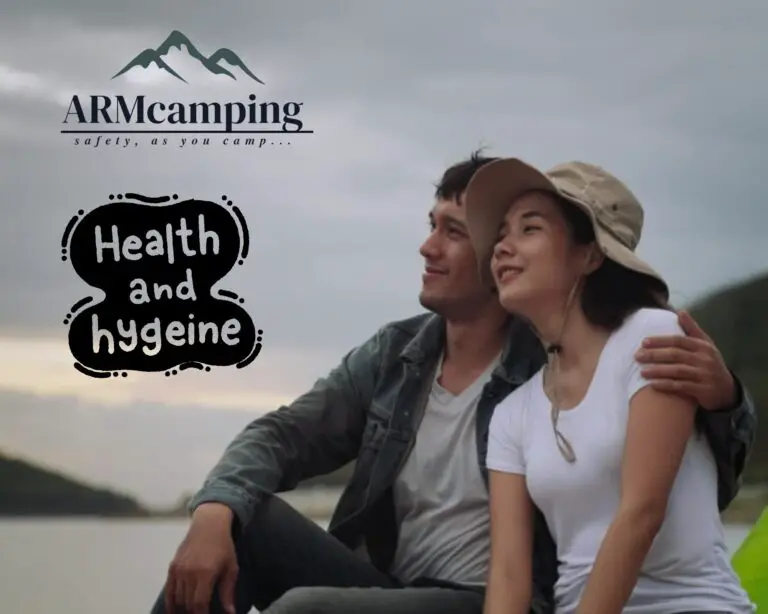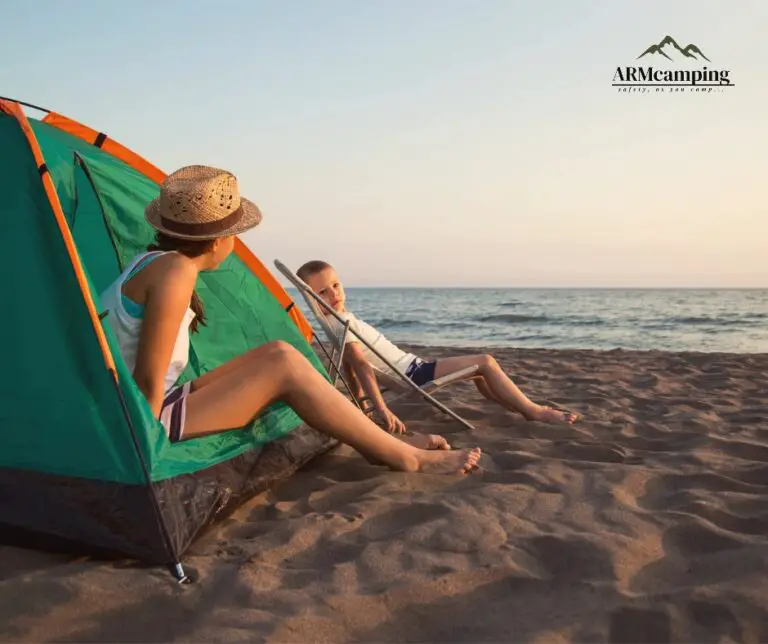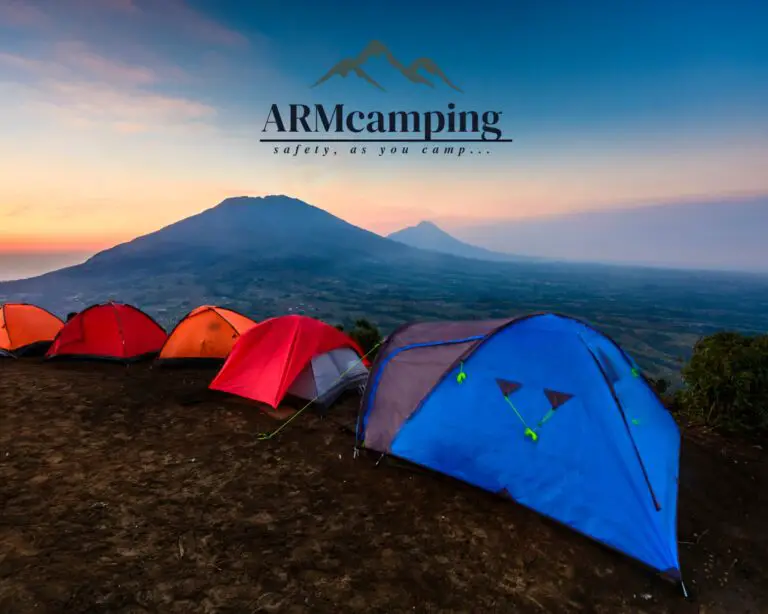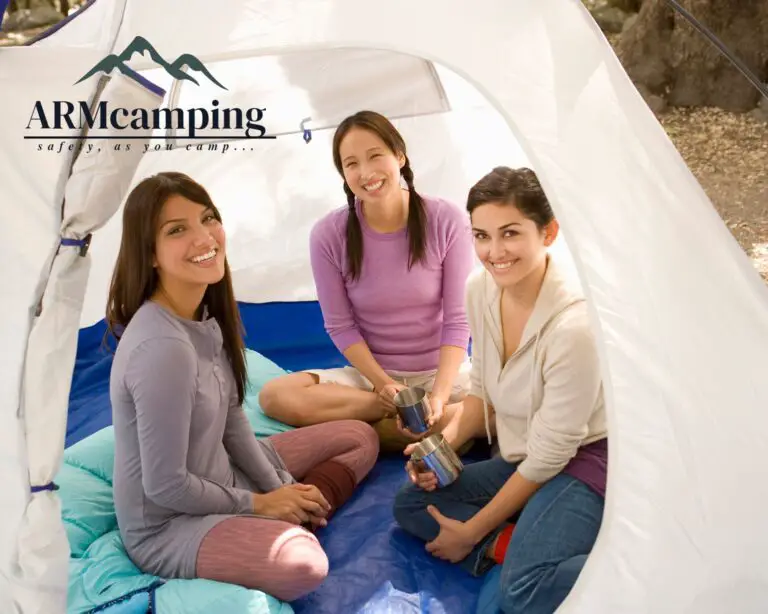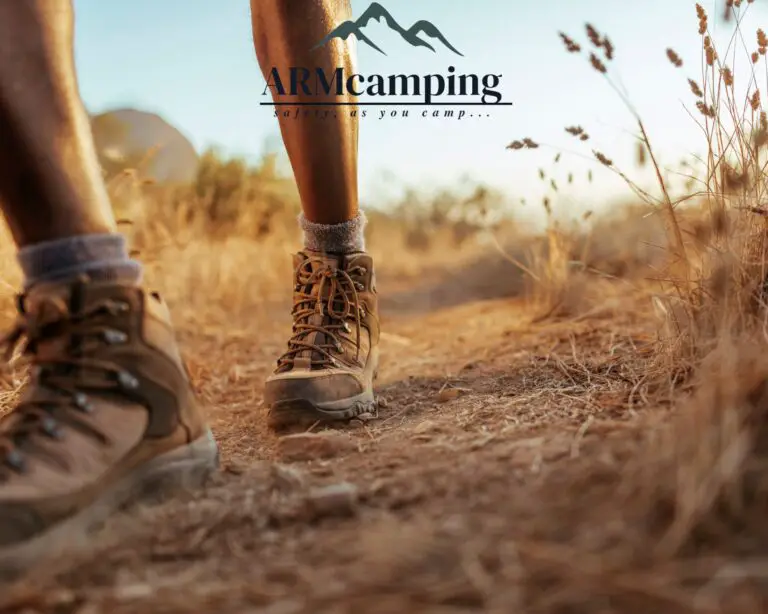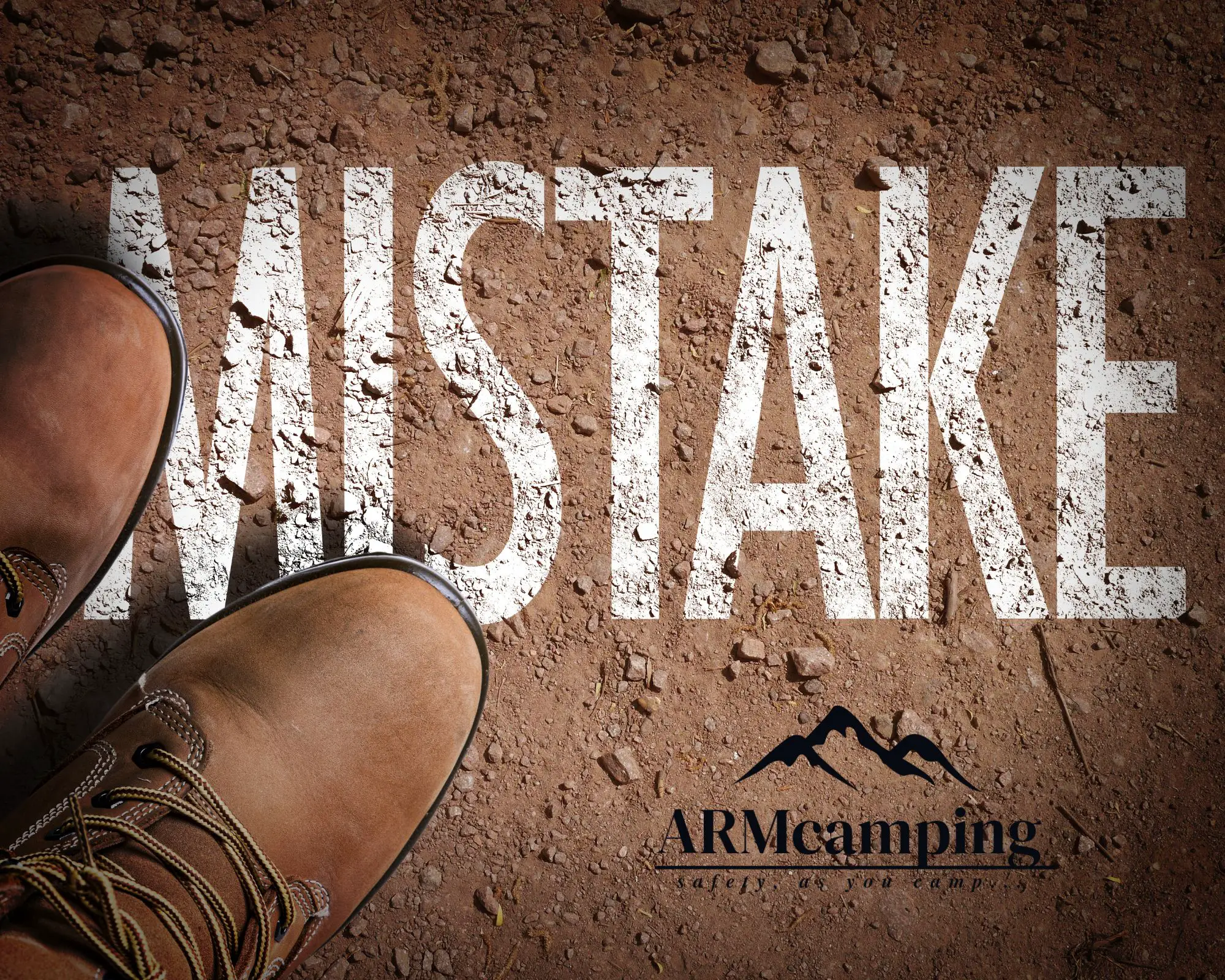
5 Common Hiking and Camping Safety Mistakes & How You Can Avoid Them
Table of Contents
One of the best things about camping is getting to experience the great outdoors and appreciate nature.
Whether you’ve been camping for years or it’s your first time setting up camp, safety should be one of your top priorities.
Hiking and camping can be dangerous sports if you are not properly equipped or educated in outdoor survival skills.
Just because you’re in a beautiful place doesn’t mean it’s safe. Things can go wrong in an instant, and the best way to ensure that things don’t go wrong is to pay attention and be prepared.
Whether you’re camping or hiking very close to your home or out in the wilderness, here are some false statements about safety during your next trip into the woods.
Wearing High-Heeled Shoes On The Trail Is Safer Than Wearing Sneakers
Wearing high-heeled shoes on the trail is safer than wearing sneakers. I know what you’re thinking — how can this claim be true? We don’t need a better explanation for this claim.
With common sense, it’s false. Wearing hiking boots instead of running shoes on a trail that is filled with rocks, roots, and mud makes perfect sense, right? Well, maybe not.
It is safer to wear the right type of shoes, that are flat-soled and flexible. This is because it stops you from being able to trip. Or not wearing the right shoes can make you suffer injured while hiking or camping.
A Cell Phone Won’t Work In The Woods, Leaving Phones And Walkie Talkie In The Camper Or RV
One of the most important pieces of safety equipment you can bring along on your camping or hiking trip is a cell phone.
Leave it at home, or in your car if you are planning to hike far away from any type of cellular reception area or if you are in an area with no service. Most times, a cell phone won’t work in the woods.
But leaving your cell phone back at camp or in the camper or RV isn’t advisable. While on the go, you will find places with services and other ways around. So go along with your phones or walkie-talkies.
Exercising Days Before Hike Or Camping Trip Can Make You More Sore And Stiff Than If You Were To Stretch And Exercise More Actively
It’s a common myth that exercising the day before your hike or camping trip will make you sore. Actually, it will do the opposite!
One of the most common mistakes I see hikers and campers make is thinking that they can use their fitness level before the trip to predict how sore they will be when it ends. It seems obvious enough, right?
The more fit you are before you go on your hike or camping trip, the less you can expect to be sore afterward.
But many people ignore this rule and end up being quite surprised by the level of soreness they experience after a concentrated outdoor excursion.
You Should Never Wear Cotton Clothing While Hiking Or Camping Because It Prevents Your Body Damp Longer Than Synthetic Fabric Would
It’s actually true. Wearing cotton clothing while camping or hiking will keep your body damp longer than if you were wearing synthetic fabric like cotton.
It doesn’t take a rocket scientist to figure this out, but it doesn’t seem the same while camping or hiking in cold weather.
Cotton clothing is one of the worst things you can bring on a long hike or camping trip during heavy winter. It will not only keep your body damp, but it will also take longer for your body to heat.
If I Can See The Mountains Or Lake From My Campsite, A Map And Compass Are Accessories I Don’t Really Need When Hiking Or Camping
If I can see the mountains or lake from my campsite, I do not need a map and compass. This is a false statement because if you could see the mountains, then you should definitely have a map and compass to prevent getting lost on the trails.
However, your fourth camping and hiking safety tip are “Know your route”. A map and compass are important tools to help you get back to the campsite, but how do you determine where you are in the first place?
Using your own two feet, of course! The easiest way to know your location is to identify it from a prominent landmark. Crossing through the wilderness isn’t always easy… especially when you’re weary and hungry.
If you’re hiking in unfamiliar territory, camping overnight, or even hiking up a mountain trail, it’s best to pack a few extra items for safety.
You should never forget to bring a map and compass, as many people assume that if they can see the mountains or lake from their campsite, then they don’t really need it. Map and compass blunders are common among inexperienced hikers and campers.
Takeaway: All the above statements are false and you should prepare ahead for your safety while hiking or camping. Learning about hiking and camping safety will help you have a fun time in nature, having no mishaps.
Finally
In conclusion, with camping and hiking safety, plan, because you never know when the weather can turn bad. From being prepared with the right clothes to packing a first aid kit, to staying hydrated and having a map and compass, hikers and campers should always be prepared in case something goes wrong.

